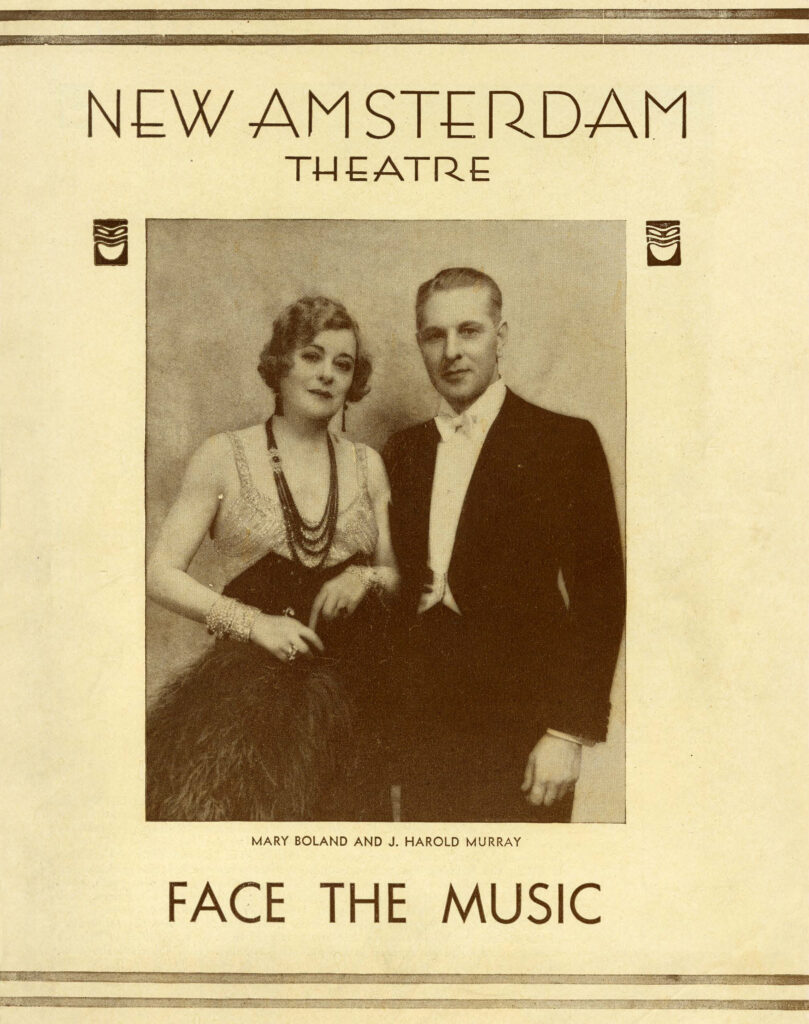1932, Yolande Oglesby Theatre Programs and Kitty Cheatham Personal Papers
Irving Berlin’s musical, Face the Music, was written in 1932 and included the song A Toast to Prohibition, which cleverly combines a ragtime melody with the main verse and instrumental dogfight to John Philip Sousa’s Stars and Stripes Forever.
Berlin and the rest of America would have to wait another year for Prohibition’s repeal, but his lyrics clearly suggest that by 1932 most of America was openly disobeying Prohibition. It is interesting to note that the program includes a colorful advertisement for Utica Club Pilsener, a non-alcoholic malt tonic, which proclaimed, “It’s the flavor your tongue remembers.”
Hoorah, for the land of the free! We can smile with conditions very cheesy, Because we are happy to be, Among the millions of civilians “speaking easy!” Get a cup! (Get a cup!) Fill it up! (Fill it Up!) With a drink you love the most! Get a stein! (Get a stein!) Filled with wine! (Filled with wine!) Let us drink another toast! Here’s to the 18th Amendment! Long may America be dry. Things are going very well, for the gentlemen who sell, To the many thirsty gentlemen who buy! Here’s to my pal Mr. Volstead, and to the members of his crew! Just as long as there’s a throat for what just came off the boat, Three cheers for the Red, White, and Blue!
The musical premiered in 1932 in New York City’s New Amsterdam Theatre at the height of national sentiment against prohibition. Displayed here is an original Broadway playbill, which also includes an advertisement for a variety show at Connie’s Inn, a popular jazz venue that featured the Louis Armstrong, Fats Waller, and Fletcher Henderson’s and Don Redman’s jazz orchestras. Unlike New York’s famous Cotton Club, which catered exclusively to white audiences, Connie’s Inn permitted both white and non-white audiences to attend its performances together.

